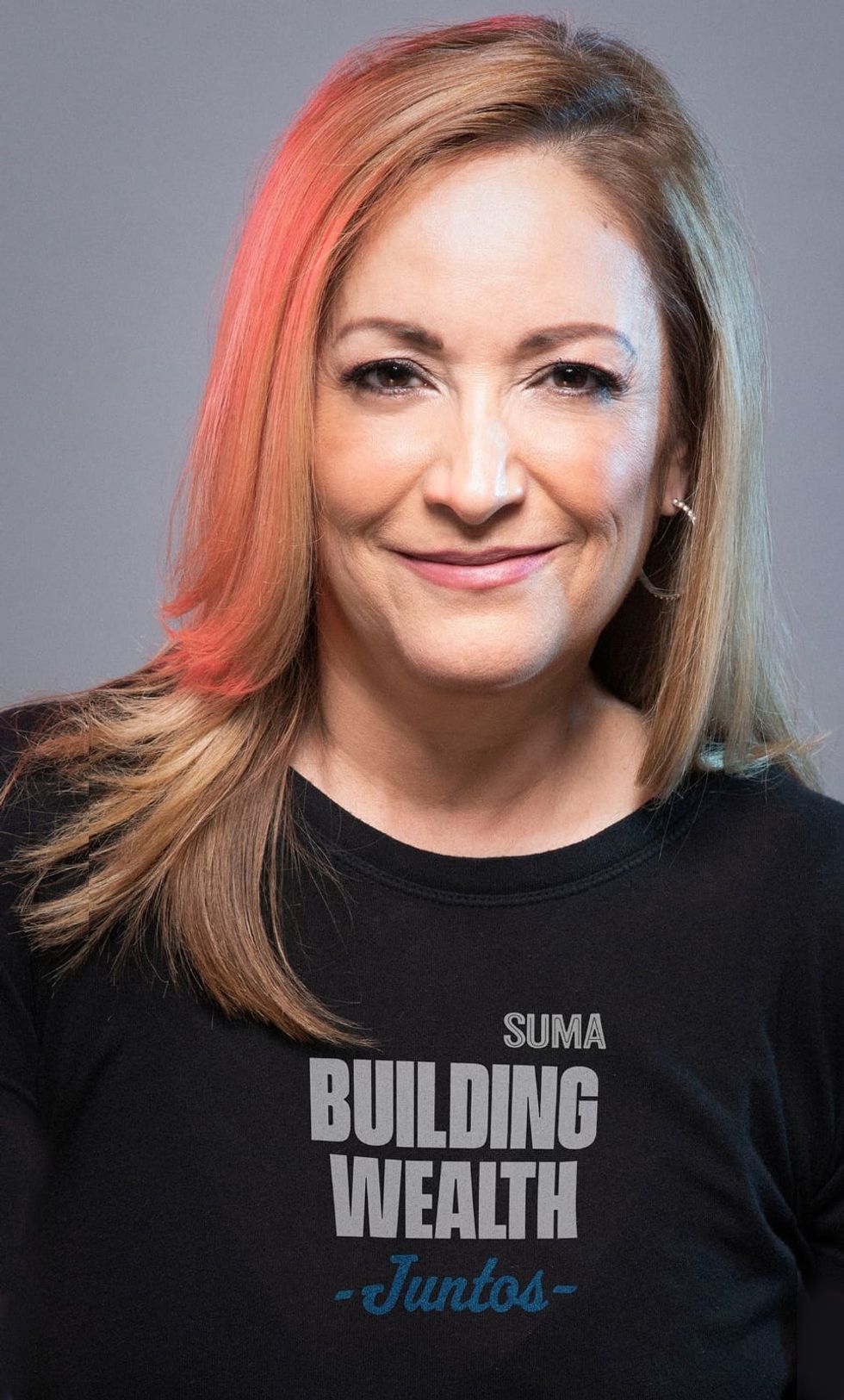Mitu Co-Founder Launches Fintech Company Aimed at Latinos
Sam primarily covers entertainment and media for dot.LA. Previously he was Marjorie Deane Fellow at The Economist, where he wrote for the business and finance sections of the print edition. He has also worked at the XPRIZE Foundation, U.S. Government Accountability Office, KCRW, and MLB Advanced Media (now Disney Streaming Services). He holds an MBA from UCLA Anderson, an MPP from UCLA Luskin and a BA in History from University of Michigan. Email him at samblake@dot.LA and find him on Twitter @hisamblake

After seeing the pandemic's disproportionate impact on lower-income minorities, Beatriz Acevedo, the co-founder of digital media company mitú, felt compelled to return to the startup world.
On Thursday, the L.A.-based entrepreneur and three-time Emmy-winning producer announced the launch of SUMA Wealth, a fintech company that will seek to provide U.S-born Latinos with financial-inclusion tools and resources.
In 2012, Acevedo launched her L.A.-based digital media company, which is oriented toward Latino youth. It raised over $50 million and boasts a monthly audience of nearly 100 million users. In 2018, Acevedo stepped down as president, and mitú was acquired this year by GoDigital Media Group for an undisclosed amount.
Acevedo will be applying much of the playbook that she used to grow mitú into what is arguably the leading digital media brand among Latino youth to her new venture.
"What mitú did was touch this audience that felt nobody saw them, and nobody got them," she told dot.LA. "That's what I plan to do with SUMA."

L.A.-based entrepreneur and three-time Emmy-winning producer Beatriz Acevedo is the co-founder of SUMA Wealth
SUMA sought a $500,000 pre-seed round but has more than doubled that. The round remains open.
Every funder in SUMA's round is female; most of them are Latina. At a panel on diversity hosted this week by dot.LA, Acevedo noted that her investors were easier to work with than the more traditional set of white male venture capitalists.
The pre-seed round was led by Chingona Ventures, with participation from The Fund, 2045 Ventures, Vitalize VC, Portfolia Rising America, Backstage Capital and OVO Fund, among others.
"I didn't have to explain to any of them why SUMA was important for our community," she said. "All of them come from that same background: where we grow up not talking about money, not talking about investment, being very confused. No matter if you went to an Ivy League school or you are somebody that did not go to college, we're all in the same boat. So it was very personal to them and they fully understood the problem."
In addition to a personal connection, the Latino community also represents a big economic market.
A 2020 study from the Latino Donor Collaborative, for instance, found that if Latinos living in the U.S. were considered a country, it would have the eighth-highest GDP in the world – larger than South Korea, Italy or Brazil.
It's also a rapidly growing segment: from 2010 to 2018, the group's GDP expanded 21% faster than India's and 30% faster than China's, according to the study.
Acevedo emphasized that SUMA is targeting U.S.-born Latinos, a group that she says has felt as if it doesn't quite belong.
Marketers tend to lump this U.S.-born Latino sector either into a general, English-speaking audience or a more traditional, Spanish-speaking group, Acevedo said.
By contrast, what mitú did and what SUMA plans to do is focus on the nuances that make this segment unique.
"The secret sauce (at mitú) was everything that we did was in-culture," she said. "It's nothing special that I did, but see them."
Acevedo said that rather than building a product and hoping to attract users to it, SUMA will start by building a brand that conveys it is "by Latinos for Latinos."
For example, the chupacabra – a mythical beast prominent in Latino folklore – is reprised on SUMA as the money-sucking "chupalana," which accompanies instructional content on topics like lowering debt, budgeting, taxes, investing and deciding whether to buy or lease.
The platform also aims to tap into what Acevedo describes as a different financial ethos. In contrast to the American reverence for self-reliance, for instance, she says, "my mother will tell you she has no money to save and invest, but if it was for someone in her family, she'd give all the money in the world. We're taking those nuances into account."
Acevedo believes developing trust among her target market is a key component to SUMA's brand. She says many Latinos harbor a deep-seated skepticism of traditional financial institutions, in large part due to a history of currency devaluations by Latin American governments that wiped out people's savings without warning.
"There's post-traumatic stress," Acevedo says, which has carried forward into today's younger generations.
Data from SUMA's 30-day beta period suggest this hypothesis has some merit. Acevedo said the company saw engagement rates 20-times higher than a composite benchmark of fintech company engagement rates. And the top questions SUMA has gotten from its users have centered around which institutions are trustworthy.
"They're hungry for this information and [they want] to do better, but they're incredibly confused on how to do it," Acevedo said.
"There are lots of Latino-led and -driven fintech offerings," she added, "but nobody has really built it at scale. I hope to build that."
SUMA is co-founded by Xavier Gutiérrez, president and CEO of the Arizona Coyotes hockey team – the first Latino to lead an NHL franchise.
"The economic success of the United States and its recovery from the current pandemic rely on the economic empowerment of this community. We exist to provide that empowerment," he said in a statement.
---
Sam Blake primarily covers entertainment and media for dot.LA. Find him on Twitter @hisamblake and email him at samblake@dot.LA
- Beatriz Acevedo, President, Acevedo Foundation; Co-founder, LA ... ›
- Why Funding Inequity Isn't Deterring These Female Founders, VCs ... ›
- How Working From Home Challenges Women and How To Succeed ... ›
- Suma Raises $2 Million to Help Latinos Manage their Money - dot.LA ›
- Tala Raises $145 Million to Expand Its Financial Services - dot.LA ›
- Latino Entrepreneurs Account for 2% of all Venture Funding - dot.LA ›
- BayaniPay Becomes a Neo-Bank With East West Bank - dot.LA ›
Sam primarily covers entertainment and media for dot.LA. Previously he was Marjorie Deane Fellow at The Economist, where he wrote for the business and finance sections of the print edition. He has also worked at the XPRIZE Foundation, U.S. Government Accountability Office, KCRW, and MLB Advanced Media (now Disney Streaming Services). He holds an MBA from UCLA Anderson, an MPP from UCLA Luskin and a BA in History from University of Michigan. Email him at samblake@dot.LA and find him on Twitter @hisamblake



 Image Source: Revel
Image Source: Revel
